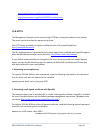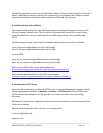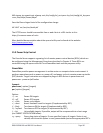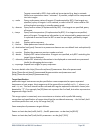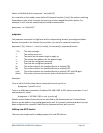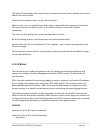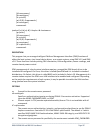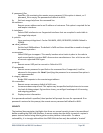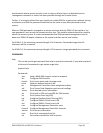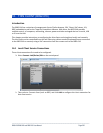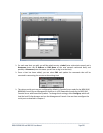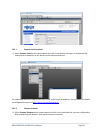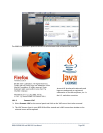_____________________________________________________________________
B096-016 B096-048 and B092-016 User Manual Page 198
-f <password_file>
Specifies a file containing the remote server password. If this option is absent, or if
password_file is empty, the password will default to NULL.
-h Get basic usage help from the command line.
-H <address>
Remote server address can be an IP address or hostname. This option is required for lan
and lanplus interfaces.
-I <interface>
Selects IPMI interface to use. Supported interfaces that are compiled in and visible in
the usage help output.
-L <privlvl>
Force session privilege level. Can be CALLBACK, USER, OPERATOR, ADMIN. Default is
ADMIN.
-m <local_address>
Set the local IPMB address. The default is 0x20 and there should be no need to change it
for normal operation.
-o <oemtype>
Select OEM type to support. This usually involves minor hacks in place in the code to
work around quirks in various BMCs from various manufacturers. Use -o list to see a list
of current supported OEM types.
-p <port>
Remote server UDP port to connect to. Default is 623.
-P <password>
Remote server password is specified on the command line. If supported, it will be
obscured in the process list. Note! Specifying the password as a command line option is
not recommended.
-t <target_address>
Bridge IPMI requests to the remote target address.
-U <username>
Remote server username, default is NULL user.
-v Increase verbose output level. This option may be specified multiple times to increase
the level of debug output. If given three times, you will get hexdumps of all incoming
and outgoing packets.
-V Display version information.
If no password method is specified, then ipmitool will prompt the user for a password. If no
password is entered at the prompt, the remote server password will default to NULL.
SECURITY
The ipmitool documentation highlights that there are several security issues to be considered
before enabling the IPMI LAN interface. A remote station has the ability to control a system's
power state as well as being able to gather certain platform information. To reduce
vulnerability, it is strongly advised that the IPMI LAN interface only be enabled in 'trusted'



